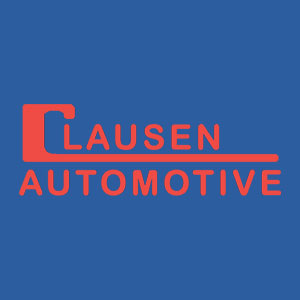
by Blair Butters | Feb 24, 2021 | General Tax and Accounting Information, Tax Planning
A report by Gallup indicates that the number of people working from home has jumped from 28% in April 2020 to almost 46% in September 2020, showing a rising trend. So how does this affect your taxes? If you’re working from home as a W2 employee, unfortunately, you can’t take any deductions. However, for those reporting their business on Schedule C of their personal income tax return, usually sole proprietors or Single-Member LLCs, or gig economy workers – AKA someone who works on short-term contracts or freelance work as opposed to a permanent job – then there are a number of deductions you can claim. In this month’s blog, we walk you through some of the most common ones and how to calculate them. Your Home Office One of the first things you may be able to deduct is expenses related to your home office. A home office is a space in your house used regularly and exclusively for business purposes. So, for example, if your office is in a second bedroom which is regularly and exclusively used for business, then the room qualifies as a home office. If the room is also used as a spare bedroom when guests are visiting, or as a playroom for the kids, the room does not qualify as it fails to be exclusively used for business. You will need to know the square footage of your home office space and the square footage of your home. This ratio will determine the percentage of various home expenses that can be claimed as a home office deduction. Once you have this information, there are...

by Blair Butters | Feb 12, 2021 | General Tax and Accounting Information, IRS, Tax Planning
2020 was the year that many dreams turned into reality as the health crisis and resulting economic climate spurred many people to start their own businesses. Business Insider recently reported that the number of new businesses applied for in 2020 had reached a 13 year high. If you started your business in 2020, the transition may make you feel apprehensive about filing your taxes for the first time as a business owner, so in this month’s blog we have put together a checklist of items you can use to get prepared. Gather Formal Documentation The first thing you will need in order to file your business taxes is formal documentation. Any tax professional will want to know about your products, industry, the state your business is filed in, and the names of any owners. It’s also a good idea to bring the following documents with you: Articles of Organization or Incorporation The formal name of your business (as registered, if applicable) The structure of your business (LLC, Sole Proprietor, Partnership, Corporation etc.) FEIN, if one was obtained Make sure you have all of this ready for your tax professional to avoid any unnecessary time delays. Financial Documentation The next, and most obvious, documents to gather are your financial statements. You will need: Your profit and loss statement – the financial statement that summarizes the revenues, cost of goods, and expenses incurred during a specified period. For the first year, it is generally from the date business began to the end of the year. Your balance sheet – a financial statement for a business that lists assets, liabilities, and equity...
by Blair Butters | Jan 12, 2021 | Uncategorized
We’ve reached the end of the year; the time of year where you’re working on closing out your books for the calendar year. You may have already started planning for the new year and have set goals for 2021, but before you do, it’s important to look back at 2020 and determine how you can best utilize 2020 deductions when reporting the activity in 2021. There has been a lot of change when it comes to tax requirements and guidelines, so in this month’s blog we break a few of these down, some related to business income and others related to personal income. Retroactive Bonus Depreciation for Business The federal coronavirus relief bill and the CARES Act were passed by Congress in order to help offset some of the financial burdens on individuals and businesses due to the current pandemic. With its passing, new opportunities for deductions have emerged. Thanks in large part to the CARES Act, a technical problem has been fixed that now allows a 100 percent bonus depreciation for qualified business improvements which are generally capital expenditures like remodeling the inside of buildings. It does not include improvements or remodeling for residential rentals or personal homes. It also does not include outside or structural remodels to your brick-and-mortar stores. However, the great news is that this is a retroactive fix, so businesses can fully deduct qualified improvements dating back to January 1st, 2018 by amending previously filed tax returns. Business Income Reduction If you are an accrual basis taxpayer, make sure that you accrue for 2020 expenses incurred prior to January 1, 2021. If you incurred...
by Blair Butters | Oct 28, 2020 | Uncategorized
When starting a small business, one of the most important decisions you will make up-front is how you’re going to structure and register it with the state and the federal government. How your business is structured will affect how you are categorized for income tax purposes, so having all the information and making an informed decision will save you any surprises when it comes to tax season, not to mention the cost of having to change the designation at a later date. So how do you know which structure is right for you? Your business structure is determined by the type of organization you select and the number of owners within the business. We will focus here on the income tax aspects of the entity choice for small start-up businesses reviewing three common structures – sole proprietorships, general partnerships, and Limited Liability Companies (LLCs). We will not consider the legal ramifications of the entity choice as you will want to consult with an attorney regarding the legal aspects of the different entities. We will also not consider other taxation issues such as sales, use or excise taxes, nor will we discuss the taxation rules of rental activities. Here’s a basic breakdown of the income tax characteristics of various small, non-corporate, business entities… Sole Proprietorship If you are the sole owner, registering as a sole proprietorship is one of the most simple and common ways to structure your business. In fact, you are automatically classified as being a sole proprietorship if you carry out business activities but are not registered as any other kind. This structure gives you complete control...

by Blair Butters | Oct 15, 2020 | Client Features
Today we are excited to introduce you to Steven (Steve) Clausen, owner and operator of Clausen Automotive and P&B Truck Accessories. The Road to Entrepreneurship Fueled by a desire to be self-employed and to use the skills he learned working at Chevrolet, Steve set out to purchase his own shop in 1975. The garage was originally located on Milwaukee Street in Madison, WI. Back then, Steve worked on cars and trucks that had carburetors, points, and plugs. All of these are now things of the past and Clausen Automotive has since transitioned to its current location on Stoughton Road, where the types of cars they work on have also evolved… More on that to come. Next to Clausen Automotive sat a retail shop: P&B Truck Accessories. The shop was owned by a company named Penda, who had originally purchased it from 2 gentlemen by the names of Paris and Burns (where the P&B came from). After a few years in business, Penda decided to stick with manufacturing, so the retail business, which sat in a building adjacent to Clausen Automotive, went up for sale. In January of 1990, Steve and his wife decided it would be the perfect opportunity to expand their business. They bought P&B Truck Accessories, which is now the largest truck accessories store in the city of Madison. Changing Gears: Innovation and Success One of the most poignant aspects of Clausen Automotive and P&B Truck Accessories is that they stay nimble and relevant in the current market by adapting to new challenges and industry upgrades. This is a process Steve has prioritized since his first days...





Recent Comments